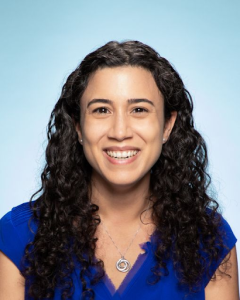Presented By: Department of Astronomy
Department of Astronomy 2024-2025 DEI Series Presents:
Dr. Catherine C. Espaillat, Professor, Boston University

"The Role of Peer Mentoring in Astronomy: LUMA as an Example"
Peer mentoring offers a unique and impactful approach to professional development, fostering supportive relationships among individuals at similar career stages. Unlike traditional hierarchical mentoring, which pairs a senior mentor with a junior mentee, peer mentoring reduces power dynamics and creates a more egalitarian environment. This approach can be especially beneficial in academic and research settings, where social and cultural factors may influence traditional mentoring dynamics.
In this talk, I will explore the impact of peer mentoring in Astronomy, highlighting the League of Underrepresented Minoritized Astronomers (LUMA) as an example. LUMA is an international peer-mentoring program specifically designed for URM women in astronomy, physics, and planetary science, including graduate students, postdoctoral researchers, research scientists, and faculty. I will outline LUMA’s mission, structure, and key programming, underscoring why such peer-based initiatives are essential for fostering inclusivity and professional growth within underrepresented communities.
Peer mentoring offers a unique and impactful approach to professional development, fostering supportive relationships among individuals at similar career stages. Unlike traditional hierarchical mentoring, which pairs a senior mentor with a junior mentee, peer mentoring reduces power dynamics and creates a more egalitarian environment. This approach can be especially beneficial in academic and research settings, where social and cultural factors may influence traditional mentoring dynamics.
In this talk, I will explore the impact of peer mentoring in Astronomy, highlighting the League of Underrepresented Minoritized Astronomers (LUMA) as an example. LUMA is an international peer-mentoring program specifically designed for URM women in astronomy, physics, and planetary science, including graduate students, postdoctoral researchers, research scientists, and faculty. I will outline LUMA’s mission, structure, and key programming, underscoring why such peer-based initiatives are essential for fostering inclusivity and professional growth within underrepresented communities.